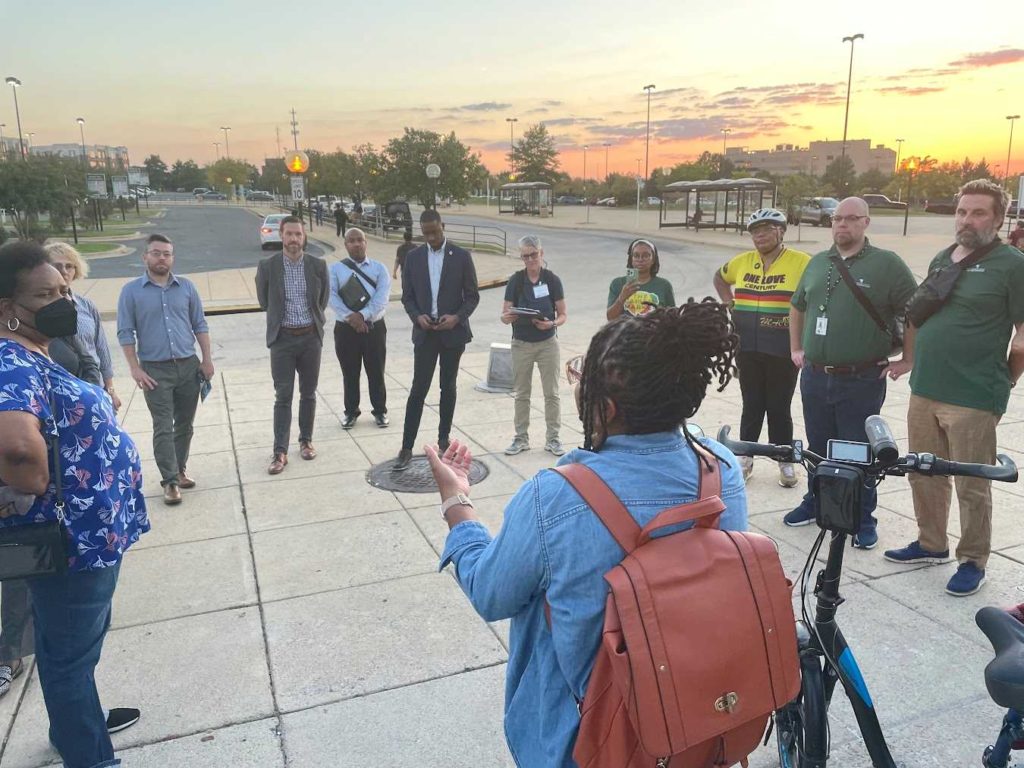A briefing for County Executive candidates on linking economic development, housing, and smart growth

February 18, 2025, Solid Rock Church, Riverdale MD
Video Recording
Sponsors
RISE Prince George’s is a group of county residents and allies advocating for policies and practices that build shared, sustainable prosperity in Prince George’s County by creating safe, walkable, inclusive and transit-oriented communities. Platform brief 2025.
LISC – DC is a mission-based investor, convener and technical assistance provider. We work with a wide variety of partners to build neighborhoods where every person, regardless of race or income level has the chance to live and thrive. Briefing 2 pager
Housing Association of Nonprofit Developers (HAND) is a nonprofit membership collective working across the private, public, and social sectors to collaborate in the production and preservation of affordable housing in the Capital Region of Baltimore, Washington, and Richmond. Representing the ecosystem of partners who bring equitable communities to fruition, HAND works to disrupt the systems that perpetuate inequity in the communities we serve. We do this by embedding racial equity into our operations, practices, and programming, and activating our membership through policy forums and advocacy designed to drive impact for Black and brown communities residing at the sharpest intersections of inequity. HAND One Pager
Enterprise Community Partners’ mission: to make home and community places of pride, power, and belonging, as well as platforms for resilience and upward mobility. Enterprise Mid-Atlantic Overview
The Capital Market (TCM) is a community-based farmers’ market that: provides healthy, affordable food options to our neighbors in the Capitol Heights neighborhood and surrounding vicinity; supports the growth of local-businesses and farms owned and operated by people of color; advocates for equitable and culturally-aware food systems.
Sowing Empowerment & Economic Development, Inc. (SEED) provides food, clothing, education and training while promoting self-sufficiency and empowerment directly to low- to moderate-income families and communities. Through community services, education and community development, SEED will create environments where all individuals are empowered, all children are nurtured, families are strengthened and communities are transformed. SEED is also the developer of 250 units of affordable housing on the Purple Line Corridor’s Riverdale Road Station in partnership with Lincoln Avenue Communities. SEED brochure
Housing Initiative Partnership, Inc. (HIP) develops innovative affordable housing, revitalizes neighborhoods, and equips people to achieve their housing and financial goals. Our vision is that every person lives in high-quality affordable housing in a thriving community. HIP handout
The Purple Line Corridor Coalition (PLCC) is a public-private-community collaborative working to leverage Maryland’s largest transit investment in the 21st century to ensure equitable change for all who live, work and invest in the corridor. PLCC flyer
Coalition for Smarter Growth advocates for walkable, bikeable, inclusive, and transit-oriented communities as the most sustainable and equitable way for the Washington, DC region to grow and provide opportunities for all. Blueprint for a Better Region
The sponsors are 501(c)(3) organizations and this is a permitted educational activity. By law, these organizations do not endorse or work on behalf of any candidate for public office.
Pictured: left to right: Pastor Mike Dickson, Solid Rock Church; Stanford Fraser, RISE Prince George’s; Sheila Somashekhar, Purple Line Corridor Coalition; Steven Palmer, HAND; Albert Slocum, candidate; Moisette Tonya Sweat, candidate; Kyle Reeder, The Capital Market and RISE Prince George’s; Marcellus Crews, candidate; Bryan Franklin, LISC; Stephanie Proestel, HIP; Cheryl Cort, CSG; David Bowers, Enterprise; Marcus Robinson, LISC; Bernard Holloway, RISE Prince George’s. Photo credit: Lesia R. Bullock, HIP


